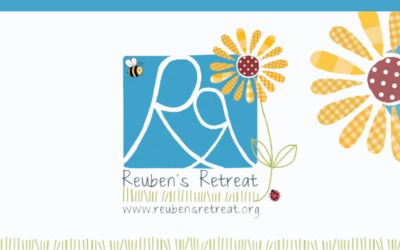Your career success will often be determined by the quality of your professional relationships, as well as the strength of your skillset. Whether you run your own business or are simply looking to take the next big step in your career, you should never underestimate the power of networking, or of self-assessment.
Life coach and founder of Careercake.com Aimee Bateman offers a guide to career self-assessment and also explains why you should be paying particular attention to your networking strategy.
Finding your strengths
When it comes to your skills, there are many benefits of employee self-assessment that can help you decide where your strengths lie. At work, we may not know what our strengths and weaknesses are as employees or employers without regular and thorough performance reviews with line managers and department heads. Many businesses see this as part of their recruitment and training schedule, but in your own case, some personal reflection can also go a long way in identifying and improving key skills and attitudes. Here’s a quick exercise to begin:
Write down one thing about you for which you would give yourself an A* grade, a B grade and an F grade.
Many personal skills can transfer to the workplace – so being a good listener makes you an effective communicator, as does being a skilled writer. Don’t be harsh to criticize yourself when jotting down the list in your notepad, particularly when deciding on your F grade – just list something that you feel requires some work.
Once you’ve got these written down, you should spend very little energy on improving your F grade ‘thing’ and focus your energy on improving your B so it becomes an A*. Although some say you should work on your weaknesses, you only have so much energy and focus in one day, so spend it on what you are good at and become phenomenal at that.
Your A* skill
Consider the one aspect of your role at work in which you feel you’re utterly indispensable. This is your A* skill, and should only be considered for improvement as part of an occasional brush-up.
Your F skill
Consider the work skills for which you struggle, then decide which one you feel needs the most work to improve. While it’s important not to let your progress in this respect slide even further, you’ll make more of an impression if you put your energies into furthering another discipline.
Your B skill
This is where you truly have the chance to shine. By improving even further on something that you already consider yourself talented at, you’ll take that skill to a whole new level and add a new edge to your work.
Organisational skills are something that everyone can brush up on – your new focus on setting calendars, meeting deadlines and sticking to schedules will allow you to become even more organised and more efficient with your time management. Technology can be hugely advantageous in helping you get organised, so make the most of any tablets or laptops available to you.
If that happens, you’ll soon be freeing up time that could be put to better use – perhaps to improve on that F grade.
Building a network
You’ll find that the first step is to identify influencers within your industry who can positively impact your career, then set about making yourself feel seen, heard and valued. However, if you’re not all that comfortable with speaking up in social situations, there are several things you can do to develop your networking skills and build your confidence:
- Consider networking at all levels within your business, from receptionist to CEO, so you have a more well-rounded view of the company. Take notes during your discussions about the business and refresh your memory with these before any event you attend.
- After that initial meeting, make sure you follow up on your new contact. Remember you cannot lose here – if you make a strong connection, great, and if not, then no harm done.
- Networking in itself is character building, and gets easier with experience for those who feel somewhat daunted at the idea. You’ll be surprised how much you learn about yourself – and soon any nervousness will go away.
Getting the most out of it
Networking is about handing out business cards, and getting involved in mutually beneficial conversations, but also making sure you maximise those opportunities. For instance, when mentioning what you do for a living, try thinking about who you are talking to and how your skillset could help them.
Make networking a key focus of your business strategy, and you’ll soon reap the rewards. If you focus on building good relationships and getting the most out of any meetings you attend, you will always find more options available to you and at the very least, it’s always interesting and fun to meet new people.
While there’s plenty of argument for an all-round development of your professional skills, concentrating your efforts on finding one of the things you do best is what makes you feel the most like a valuable asset to your company.








